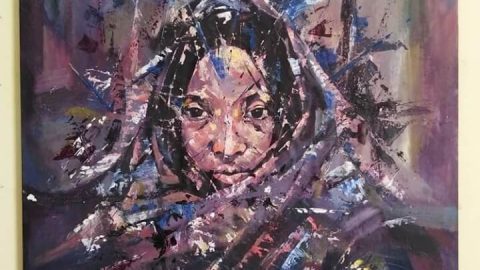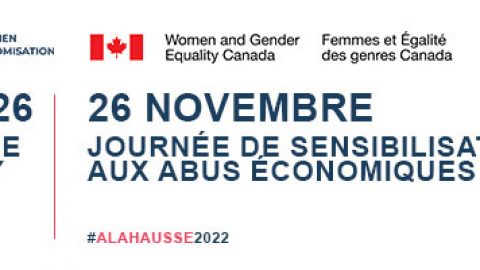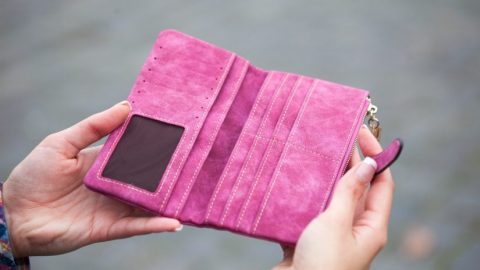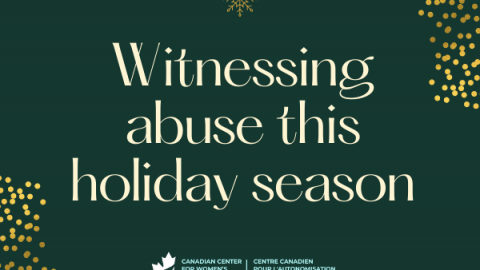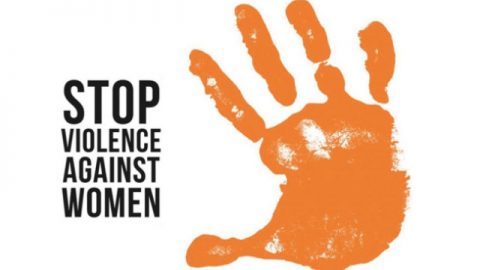Economic Abuse and Disability
Anna identifies as a survivor of physical, psychological, and economic abuse. She also has arthritis, a learning disability, chronic depression, and anxiety. She is one of the women falling through the cracks of the Canadian system.
According to the DisAbled Women’s Network (DAWN), 1 in 5 Canadian women live with a disability. It is estimated that 40% of these women will experience some form of abuse in their lifetime, making them one of the most vulnerable groups in Canada.
While all abuse can have devastating effects, economic abuse can cause long-lasting harm even after a relationship has ended. Economic abuse, defined by Parmita Das “is a form of abuse where an intimate partner has control over the other partner’s access to economic resources…threatening their economic security and potential for self-sufficiency”. Anna did not understand the economic abuse she endured until she sought help. Economic abuse is so under-discussed it was only after she left the relationship that she heard the term for the first time.
Women with disabilities are much more vulnerable to economic abuse within a relationship than those without disabilities. Some women with disabilities report having their governmental support appropriated or access to necessary resources such as medication withheld by their abusers. In addition, the practice of having one person control the finances is sometimes normalized within the relationship which means that economic abuse is harder to identify.
Abusers of people with disabilities often frame themselves as loving caregivers. They use coercive control to make their victims feel worthless and helpless, making them even more dependent upon their abusers. Anna’s abuser used a combination of psychological, emotional, and financial abuse to control and belittle her. “He told me I was ugly, unlovable, and useless, He made me feel that nobody would help me. He had beat me down so bad”. Through many forms of abuse, her husband made it nearly impossible for her to leave the relationship.

Women with disabilities can find it much harder to leave relationships, as their partner might also be their caregiver and provider. Anna’s disabilities have made it impossible for her to work, which left her feeling trapped in an abusive relationship. Without any capital of her own, or any access to their shared finances, she could not envision a future outside the relationship.
When Anna left her abuser, she faced a grim reality, testament to the lack of support survivors of abuse have. Anna could not work because of her disabilities. Without any income, Anna could not get a bank loan, an apartment, or a credit card without a cosigner: “I’ve learned to live on next to nothing. If the housing cooperative hadn’t voted me in, I know I would be on the street.”
Bureaucratic red-tape makes life incredibly difficult for women who have left abusive relationships. Anna’s spousal support is classified as income when she pays taxes, but not when she applies for a bank loan. She was also denied a disability allowance because she is owed 50% of her abuser’s pension. Yet she cannot access that money until he retires.
While Anna’s health has deteriorated during the COVID-19 pandemic, she hasn’t received a single penny from the government to help. “I don’t fall into any of their categories, so I am punished,” Anna stated.
Researchers into intimate partner violence seem to assume that women with disabilities do not have partners; as such the area is grossly overlooked. Of those researching the impact of abuse on people with disabilities, few consider economic abuse within intimate partner violence.
There is only one national organization working to raise awareness of economic abuse: The Canadian Center for Women’s Empowerment. CCFWE was a lifeline for Anna, a place where she could seek support and resources on economic abuse.
CCFWE is advocating for Policy and System change to help women like Anna. They are collaborating with financial institutions on best practice. They support survivors through wellness initiatives and financial literacy campaigns. But still, the statutory definition of domestic violence in Canada does not include economic abuse.
Until economic abuse and its enduring ramifications are recognized by our society, women will continue to fall through the cracks. As Anna states, “You leave a bad situation and society keeps kicking you.”
By Dr. Selena Rathwell, CCFWE Volunteer Social Justice Writer


